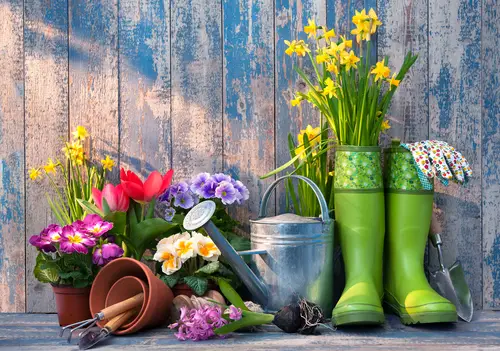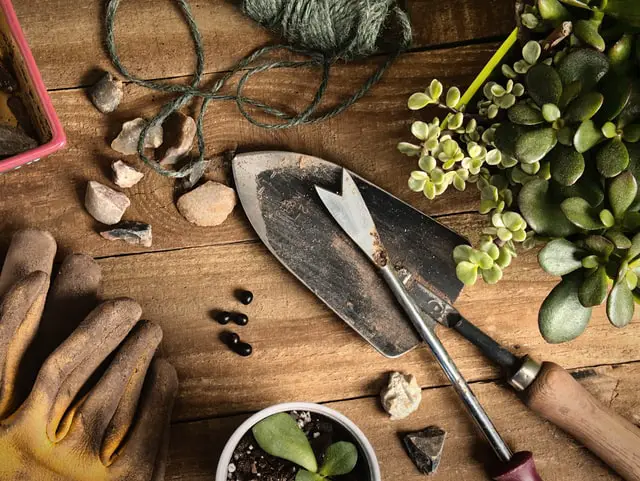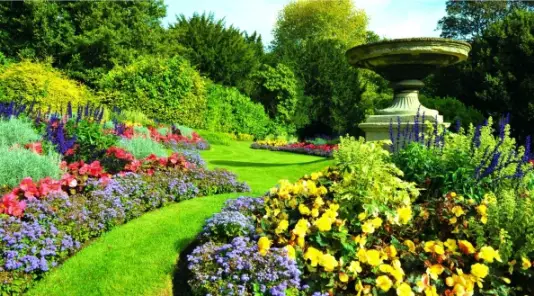It’s never too late to begin gardening
I developed a love for gardening fairly late in my life. From the age of 12 years, I had watched my parents – especially my mother – develop what had not so long before been a vineyard into the most amazing garden. My father was tasked with the building of curved breeze-block walls to provide privacy between the front and back garden in the area outside the kitchen, and then given the unenviable job of laying down slate crazy paving between the walls to provide us with an outdoor seating area. He was the muscle behind the ideas, laying and mowing the lawns, digging out flowerbeds, planting shrubs and trees, building rustic stone steps and retaining walls leading to the upper section of the garden, and turning a paper design into a small free-form fish pond. I watched all this happening, but was not actually involved to any appreciable degree apart from watering the garden when asked to do so, and grudgingly weeding flowerbeds as a penance for some forgotten crime or misdemeanour.

In all honesty, I had other, more pressing matters on my mind, including learning enough to get me safely and easily through my school classes and on to university. The garden continued with its own life, re-seeding itself, edging out established plants in favour of those of its own choosing, it seemed, and steadily nurturing two of the most enormous and water-greedy Weeping Willows any single garden has boasted. I can still remember the cicada choruses from those two trees which heralded the late spring and summer months and nearly drove all of us crazy with the noise.
Learning to garden is a slow lesson in love and achievement
Since my first home away from my parents’ house was a flat, there was little opportunity to develop any particular desire for a garden, but I did manage to grow the most amazingly healthy and gigantic indoor ferns which took pride of place and were much admired by everyone except the cat, who seemed to think that she was destined to be the plants’ next meal and carefully avoided them. Once married and living in our first house, the rather large neglected garden we acquired became an important solo project for me as we were both working full-time during the day and my husband was studying at night, so my weekends were spent trying to make some inroads into our patch of bare dirt and weeds. I learned that buying plants, feeding and watering them was an expensive undertaking which we could not afford, and so began my journey into propagation from existing plant cuttings kindly provided by my long-suffering neighbours with established gardens. At the start, I lost far more plants than I grew, but with each loss came a steady learning process about the mistakes I was making and how to prevent a re-occurrence. I learned how to water, mulch and fertilize in the right proportions, as well as how much sun each different plant required.
I learned about aphids, rust, black spot, downy mildew and a host of other fungal diseases and pests which were determined to see my painstaking efforts at giving new life end in miserable failure. I learned how to attract bees and butterflies to the garden, but constantly waged war with caterpillars, snails, slugs and beetles which eat at ferocious and greedy speeds and can decimate a plant in one night. Through nurturing, constant watchfulness and remedial action, I slowly and steadily grew a garden and fell in love with the process as well as the end result. I propagated new plants from my existing successful propagations, and even passed some back to my neighbours, handing on the results of my efforts instead of the other way around. It felt good. It felt wonderful. It felt like love!
Grow your own herbs and vegetables
Gardening has a very practical aspect to it, besides the beautification of an outdoor area. Even if you only have a small balcony which can accommodate a few plant pots, you can grow your favourite herbs or vegetables. Tomatoes don’t even require the purchase of seed – simply lightly bury tomatoes which are past their best, keep the soil moist and wait for new plants to appear. It’s like magic. You can grow new plants from the leftover scraps of vegetables such as onions, celery, carrots, leeks, Bok Choy, lettuce and cabbage, as well as from small cuttings of basil, mint, coriander and other herbs. I have grown new lemon trees from the pips and a couple of large avocado trees from the stones of used fruit. This takes patience, but the rewards are tremendous and so very tasty when grown and picked direct from your own garden.
Gardening is a ‘forever’ hobby which takes hard work
Since establishing my first garden, I have developed three more in different provinces, and have left behind a legacy for the new homeowners to either continue or adapt to their own specific desires. The hours I spent working in the open, under the beautiful South African sun, were some of the happiest and most fulfilling hours of my life. The results gave pleasure not only to me, as the gardener and designer, but to all those who enjoyed the garden with us. Whether surrounded by lush planting or water-wise succulents, gardening in shady or full-sun conditions, nurturing and developing small townhouse gardens or larger areas, it all comes down to the same thing – the establishment and development of an environment which, in turn, brings life to insects (both good and bad) and sustains bird and animal life. Gardening is not all about sitting back and enjoying what you have created, although that is the ultimate reward. It is hard work, demands time and financial sacrifice, can be heartbreaking when it fails but wonderfully satisfying when it succeeds. In the words of George Bernard Shaw, “Gardening is the only unquestionably useful job”. Whilst I might not wholeheartedly agree with this statement, it perfectly sums up the benefits of being a gardener. Whether you are an amateur, general or professional gardener, your efforts contribute to the beautification of an area. You learn as you go, and what a beautiful journey it is!


white suit
#Thanks for sharing your thoughts about gardening, great post!